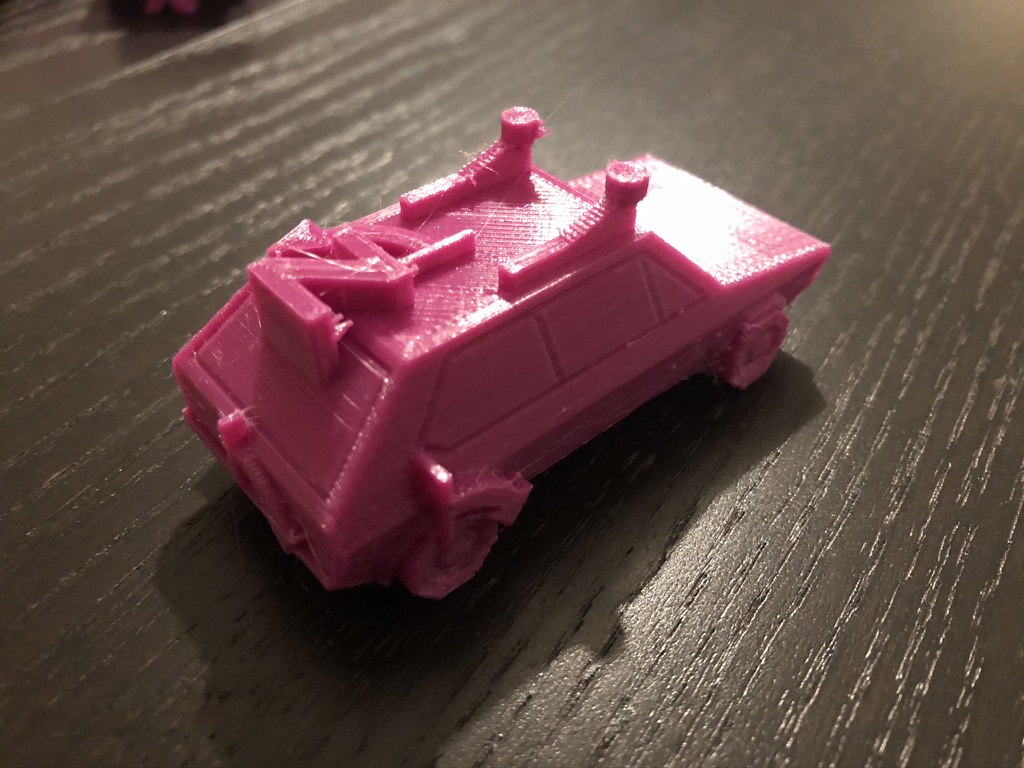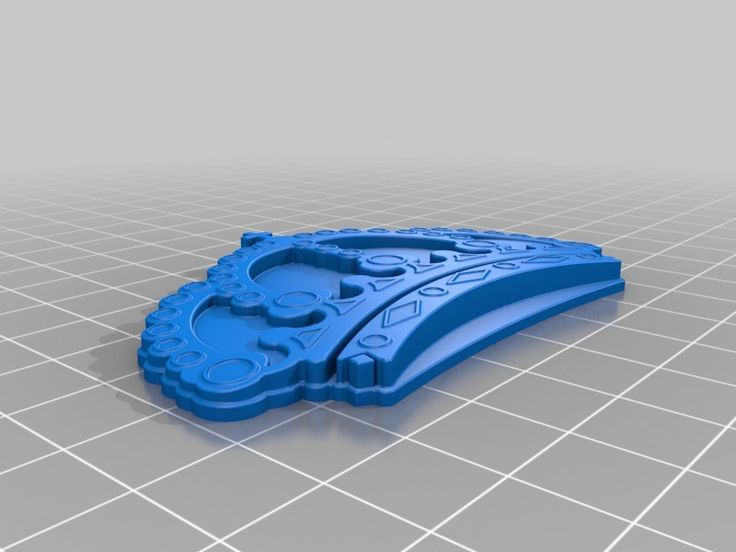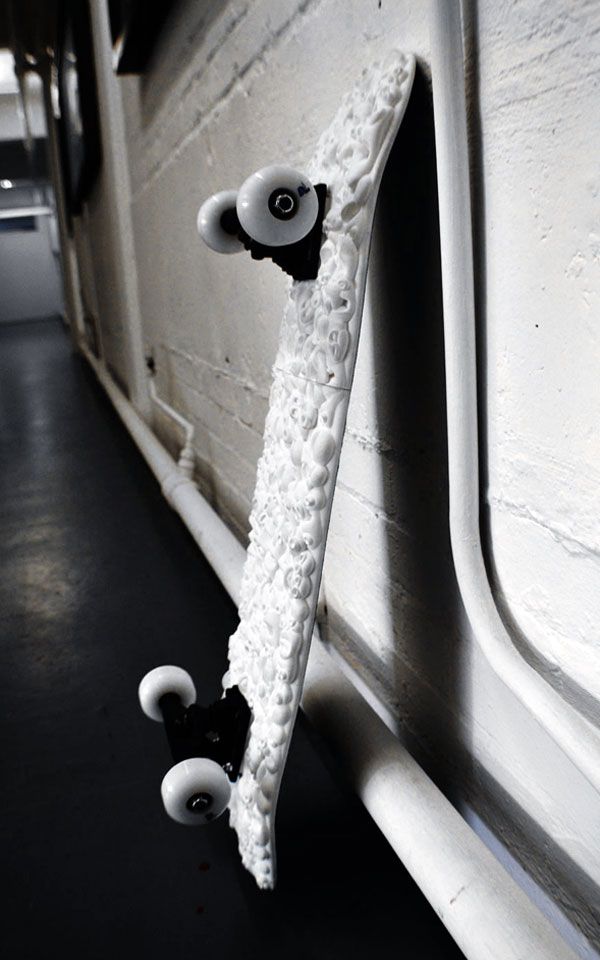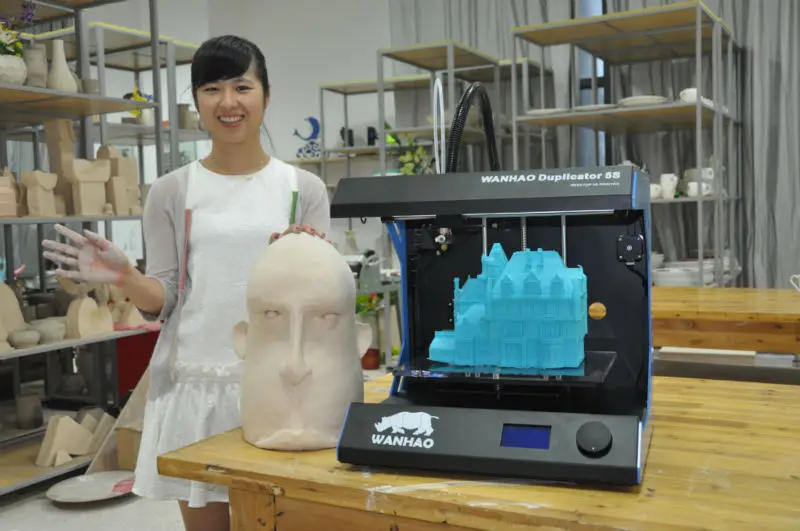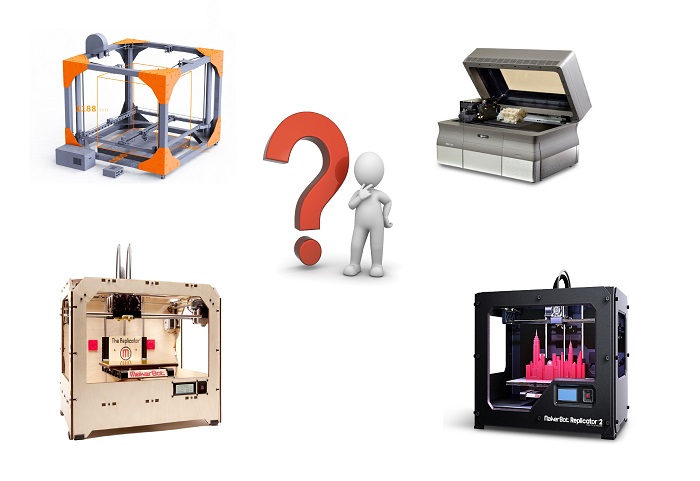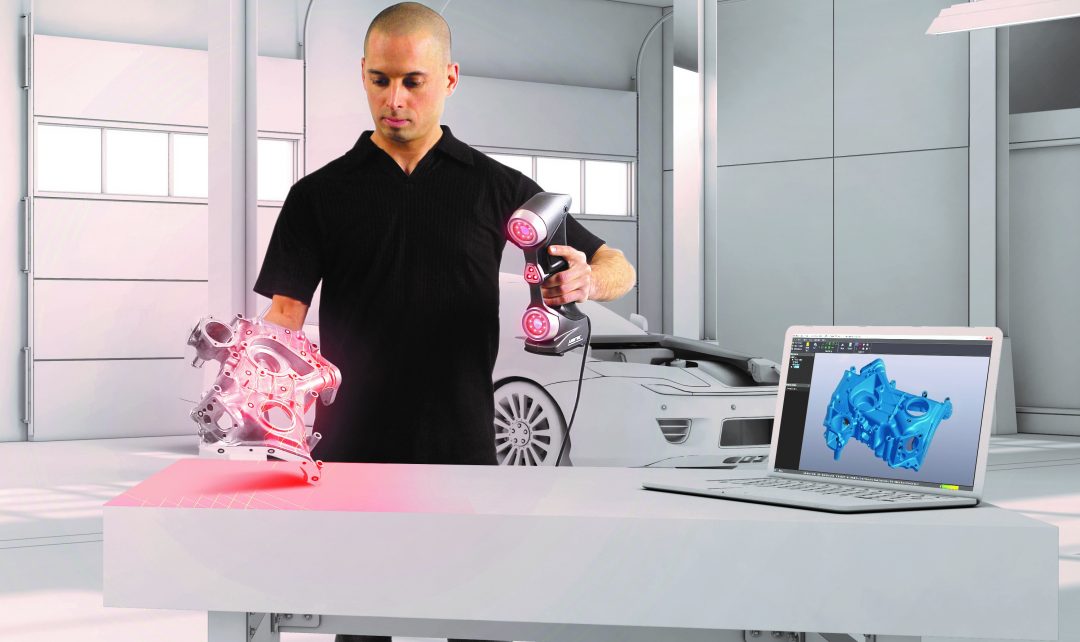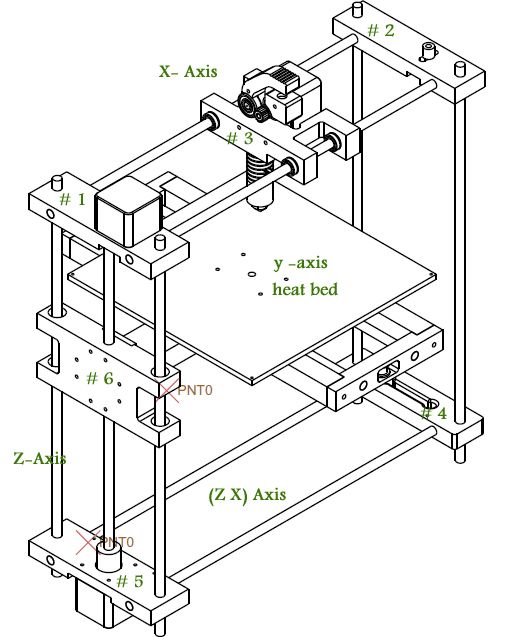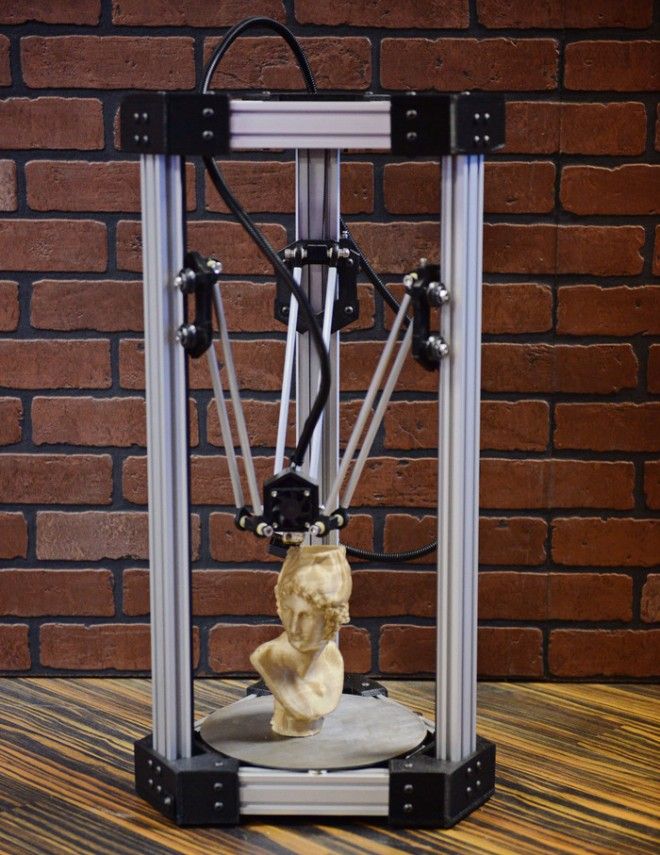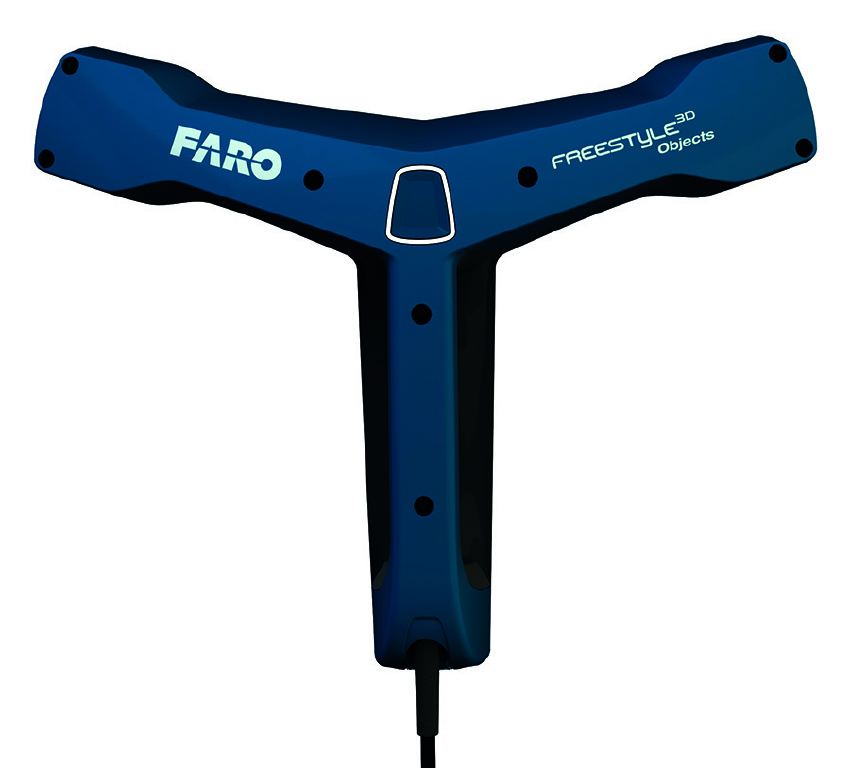Craziest things 3d printed
The 10 Strangest 3D Printed Objects
Here’s a riddle for you: What’s more amazing: Technology? Or what can be made with technology?
Apply that riddle to any number of topics: medicine, the internet, nuclear armament, or engineering, and you’re in for an afternoon of philosophical pondering. But, as far as 3D printing is concerned, there’s a very clear answer to the riddle.
While 3D printing technology is amazing, the things that have been created using 3D printing are far more incredible. Let’s discuss the 10 strangest things that have been 3D-printed. But first, let’s briefly review what has been going on in the 3D printing world.
How does 3D printing work?
Have you ever made a sandwich? It’s simply an act of stacking layers of ingredients. The first layer is a slice of bread. The second layer is a coating of mustard. The third layer is a slice of lunch meat, and then there’s a layer of lettuce, and then tomatoes, and so on, so forth.
3D printing works in the same way. A 3D printer creates a physical object by stacking layer after layer of a particular substance. Each layer is poured as a liquid. Once the liquid dries or hardens, the next layer is poured on top. There are other 3D printing methods, but they work in roughly the same way.
A 3D printer works off of a computer-aided design (CAD). A CAD is basically a digital model of whatever’s going to be 3D printed. The CAD provides the exact specifications of the object so the 3D printer knows what the shape and size of each layer will be. Before you 3D print an object, you’ll first have to use a design-optimized computer to create a CAD of the object.
Are there limits to 3D printing?
Yes and no. Most of the limitations of 3D printing have to do with two things: size and substance.
On a regular printer, you can’t print a document that’s larger than the printer itself. Similarly, you can’t 3D print anything that’s larger than the 3D printer.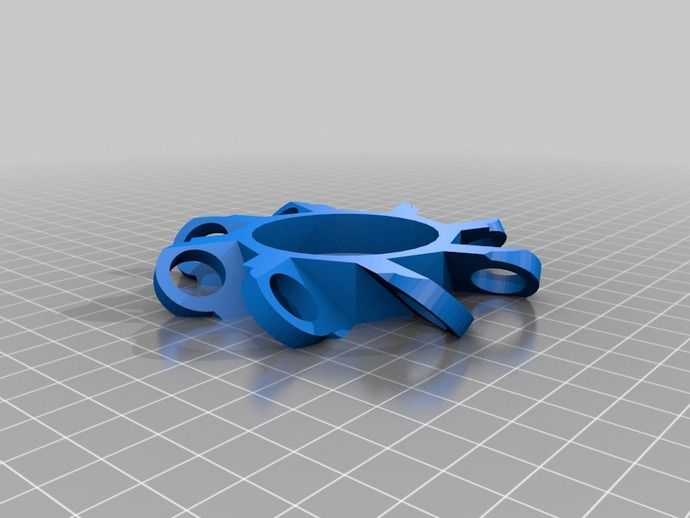 But that hasn’t stopped some of the more ambitious individuals. An entire high-rise building has been 3D printed (we’ll get to that, soon). Obviously, the building wasn’t constructed entirely within the machine. But each portion of the building was 3D printed and then assembled onsite.
But that hasn’t stopped some of the more ambitious individuals. An entire high-rise building has been 3D printed (we’ll get to that, soon). Obviously, the building wasn’t constructed entirely within the machine. But each portion of the building was 3D printed and then assembled onsite.
One of the trickier obstacles to overcome is the choice of material that’s used to print. The material must be something that can be melted and fused into a solid shape. Engineers are always working to develop 3D printers that can print using new kinds of substances, and there are now 3D printers that can print metal objects. There still isn’t a 3D printer that prints wood, but they’ve gotten close. Hilariously, there are 3D printers that can print food (yeah, we’ll get to that, too).
With enough creativity, you can overcome some of the limits of 3D printing technology and create some truly remarkable things.
Useful 3D-printed objects
3D printing technology has been around since the 1980s.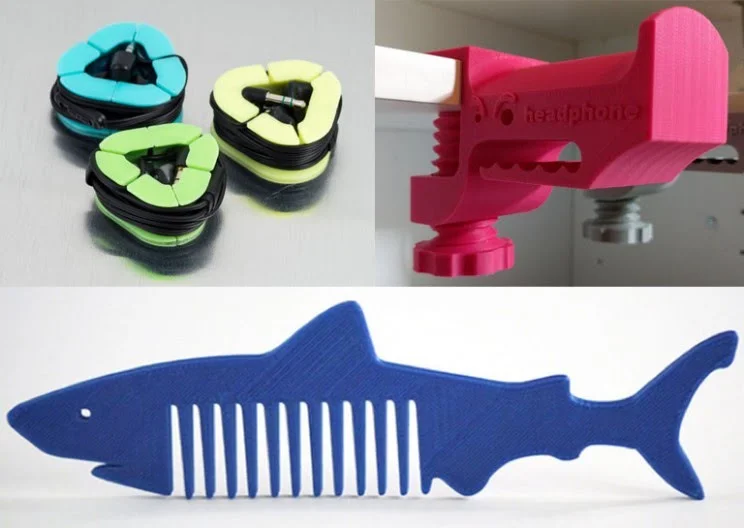 Originally, it was used to create scale models of manufacturing prototypes or assembly line parts, and that’s still largely what it’s used for today. Machine parts and scale models are commonly built using 3D printers.
Originally, it was used to create scale models of manufacturing prototypes or assembly line parts, and that’s still largely what it’s used for today. Machine parts and scale models are commonly built using 3D printers.
But in the last decade, 3D printers have become much more accessible to consumers. Media interest in 3D printers has also encouraged broader experimentation in lots of different industries, and these days both amateurs and professionals alike are printing unique 3D objects.
Strangest 3D-printed objects
Let’s discuss some of the weird objects that have been 3D printed. Some of these objects are actually quite useful. Others are not. But all of them are wonderfully weird. Here are 10 very bizarre things that have been crafted with 3D printers.
1. Mouse ovaries
Researchers at Northwestern University in Chicago created the first artificial mouse ovaries using a 3D printer. [1] Okay, so mouse ovaries aren’t technically useless - they’d be very useful for any infertile mouse.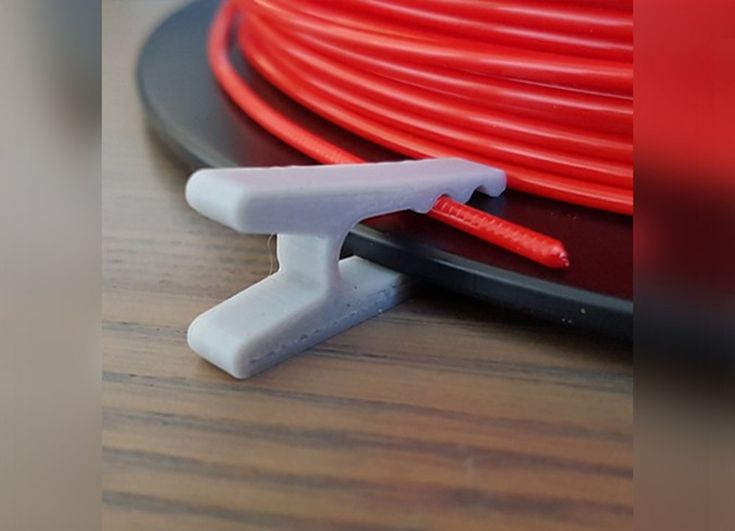 But ovaries aren’t the first thing you’d expect to be 3D printed, right?
But ovaries aren’t the first thing you’d expect to be 3D printed, right?
The mouse ovaries were created by 3D printing layers of gelatin. Then they were surgically implanted in seven infertile mice. Of the seven mice that received implants, three mice successfully gave birth to litters of pups.
There are human implications to this discovery, of course. The researchers hope that someday, they’ll be able to print artificial human ovaries for cancer patients and others who are infertile.
2. Food
Speaking of mice: researchers at University College, Cork in Ireland 3D-printed objects using cheese. [2] They filled a 3D printer nozzle with Easy Cheese and printed “cheesy” designs with it, including a small bear. The designs were mostly flat because aerosol cheese isn’t the most stable printing substance.
There are other types of foods that have been 3D printed, too, one of the most famous being 3D printed chocolate. If you think that chocolate rabbits are neat, you should see some of the nifty chocolate designs that have been made with 3D printers.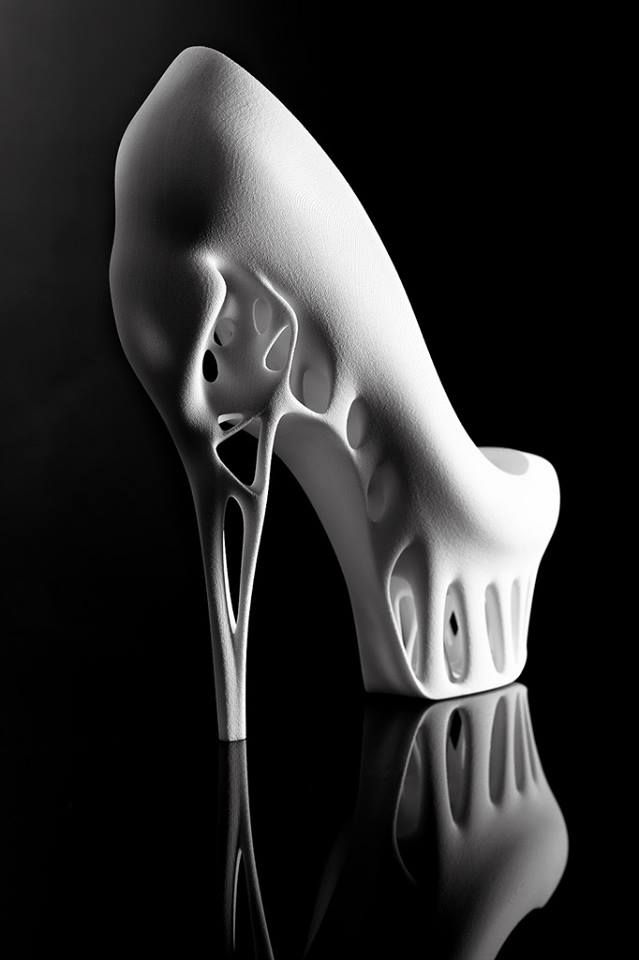
Chocolate makes for a great 3D printing substance because it can be layered while it’s melted then easily hardened. There are several companies that sell 3D-printed chocolate, including chocolate behemoth Hershey. [3]
They’ve also 3D-printed pizza. A printer was equipped with three nozzles that dispensed liquid dough, tomato sauce and cheese. In under five minutes, the pizza dough was ready for baking. Researchers said they were able to accurately control the crispiness of the bread thanks to the 3D printer.
Here are some other cool foods that have been 3D-printed:
- Quiches
- Croutons
- Candies
- Cereal
So what’s on the horizon for 3D-printed food? For one, restaurants and bakeries will be able to print large quantities of stylized foods and pastries. But the hope is that people will be able to prepare food in their own homes without having to cook. Very futuristic, indeed. “Computer...Tea. Earl Grey. Hot.”
3. Skin
Researchers at the University of Toronto created a handheld 3D printer that could apply skin cells on a pig.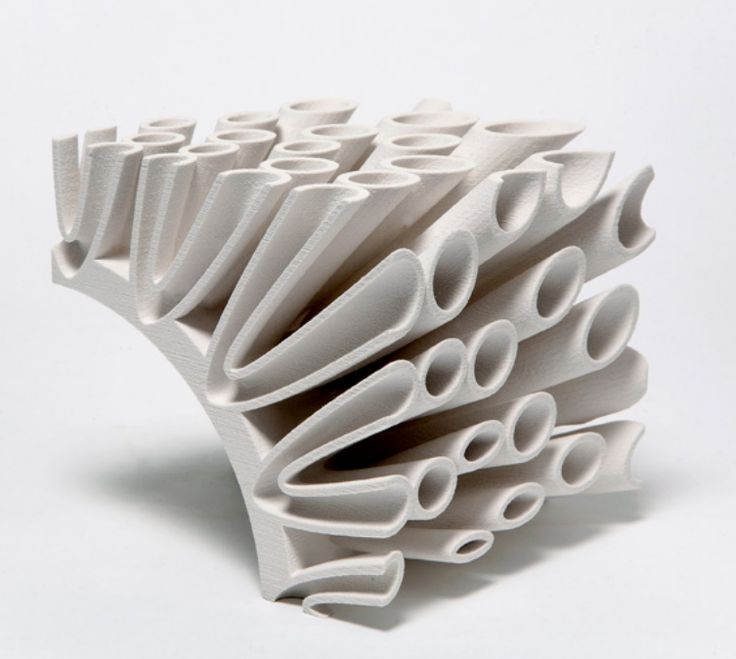 The pig had its cells harvested, and the cells were grown to a larger quantity. Once researchers had enough cells, they used the cells as the printing substance.
The pig had its cells harvested, and the cells were grown to a larger quantity. Once researchers had enough cells, they used the cells as the printing substance.
The 3D printer was rolled over the pig’s wound “like a white-out tape dispenser.” Success! The skin cells successfully attached to the open wound area. Scientists think that in the future, this technology could be used to replace skin grafts. It would make it much easier to treat victims with open wounds - especially burn victims. [4]
The science of printing living tissues is known as bioprinting. Researchers have printed:
- Artificial bone
- Artificial blood vessels
- Artificial bladders
Scientists are hoping they’ll be able to finally end the long - and sometimes fatal - wait for organ transplants. [5]
4. Bikini
Textiles are notoriously difficult to print, but a company called Continuum Fashion has created a number of cool 3D-printed fashion items. Their standout fashion piece is the 3D-printed bikini.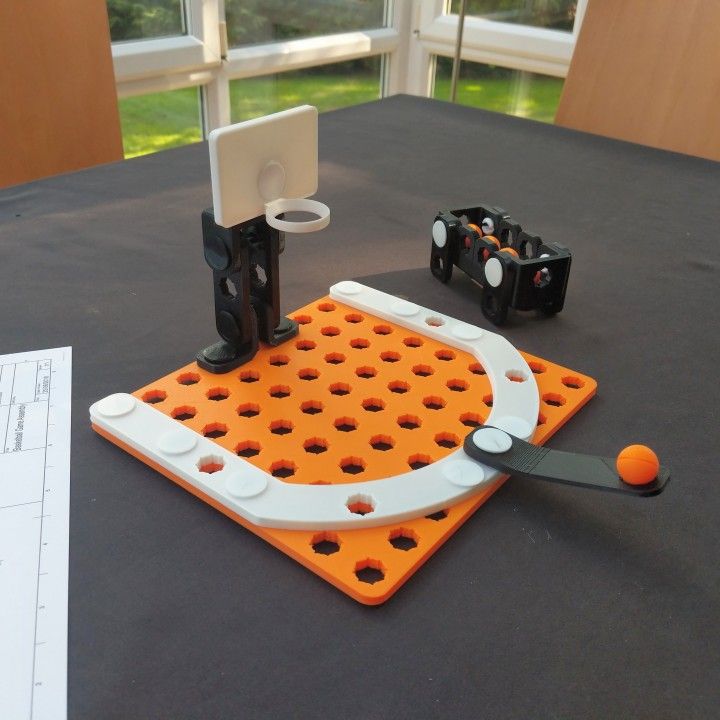 You can hit the beach and go swimming in style and comfort.
You can hit the beach and go swimming in style and comfort.
Continuum printed the bikini using a material called Nylon 12, which is strong, flexible, and waterproof. The bikini has an awesome texture, too. It’s composed entirely of interconnected beads, a testament to the intricate kinds of designs that can be printed.
The company also produces a line of 3D-printed women’s shoes. [6]
5. Mini Power Drill
You’ve got to see it to believe it. A man in New Zealand created the world’s smallest power drill with a 3D printer. The drill measures 17 x 7.5 x 13 mm, and is equipped with a 0.5 mm drill bit. And it works! The drill is powered by a hearing aid battery and utilizes a miniature motor and headphone-cable wiring. [7]
Should we call this the world’s smallest drill, or the world’s cutest drill?
6. Microscopic race car
There’s a bizarre creation courtesy of researchers at the Vienna University of Technology. They created a 3D printer that can create near-microscopic objects.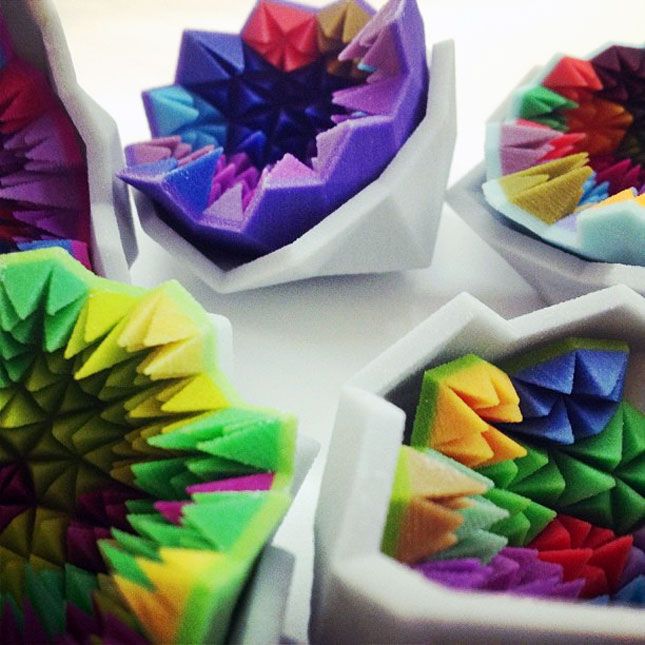 To demonstrate its abilities, the researchers printed a tiny race car that’s just about the width of a hair follicle. [8] It’s not quite built to tackle the Monaco Grand Prix, but it would make a perfect vehicle for lice.
To demonstrate its abilities, the researchers printed a tiny race car that’s just about the width of a hair follicle. [8] It’s not quite built to tackle the Monaco Grand Prix, but it would make a perfect vehicle for lice.
7. Wall-climbing robot
South Korean scientists used a 3D printer to build a robot that can climb walls. The robot mimics the movement of a gecko and is capable of climbing up vertical walls with the help of adhesion pads. The robot’s body was 3D-printed using a material called Polyamide 12. [9]
Another cool robot was 3D-printed at the University of California, San Diego. This robot has three legs and can navigate rough terrain, like sand and rocks. 3D printing was integral in building the robot. In order to crawl over rough terrain, the robot needed to be constructed of softer, more flexible materials than what most robots are made of. The researchers were able to 3D-print the robot’s soft and hard surfaces together. [10]
8. Unborn babies
Thanks to 3D printing, expectant parents can hold their baby before it pops out of the womb.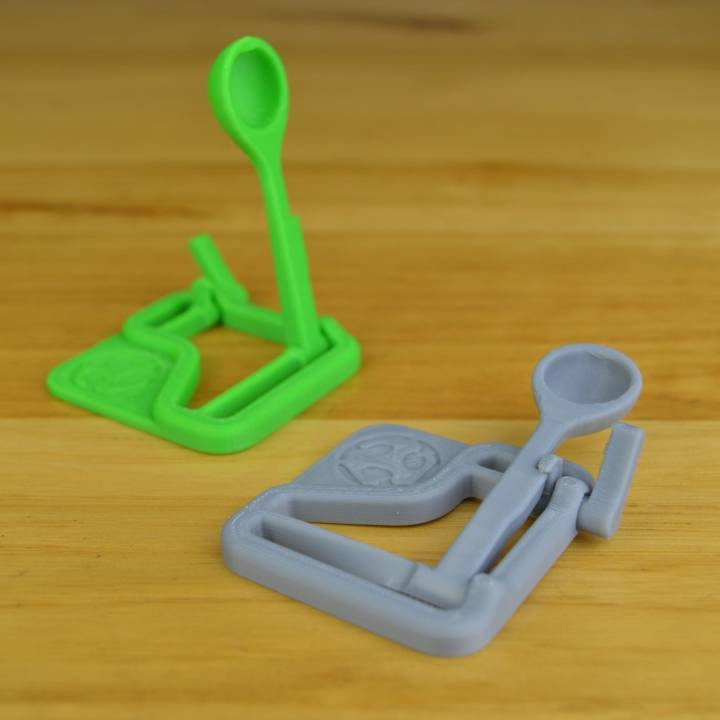 A Russia-based company uses ultrasound scans to create a 3D-printed model of the unborn child. Umm… cute?
A Russia-based company uses ultrasound scans to create a 3D-printed model of the unborn child. Umm… cute?
In actuality, the models aren’t made to be baby shower gifts. They help doctors evaluate the health of the developing child. The models are a bit surreal. They’re highly detailed and capture the smallest facial features of the unborn baby. [11]
Imagine the comedic possibilities of using an unborn baby model at a gender reveal party.
9. Buildings
Buildings aren’t strange (unless we’re talking about some contemporary architecture). But constructing a building with a 3D printer is strange. How on earth can a 3D printer construct something so gigantic?
Concrete is the main substance that’s used by a 3D printer to print a home. A crane lifts the printer nozzle above the ground and maneuvers the nozzle as it places layers of concrete. Some 3D printers can also layer insulation materials.
Most 3D-printed buildings don’t adhere to building codes, so they’re either built as temporary structures or they’re built very small.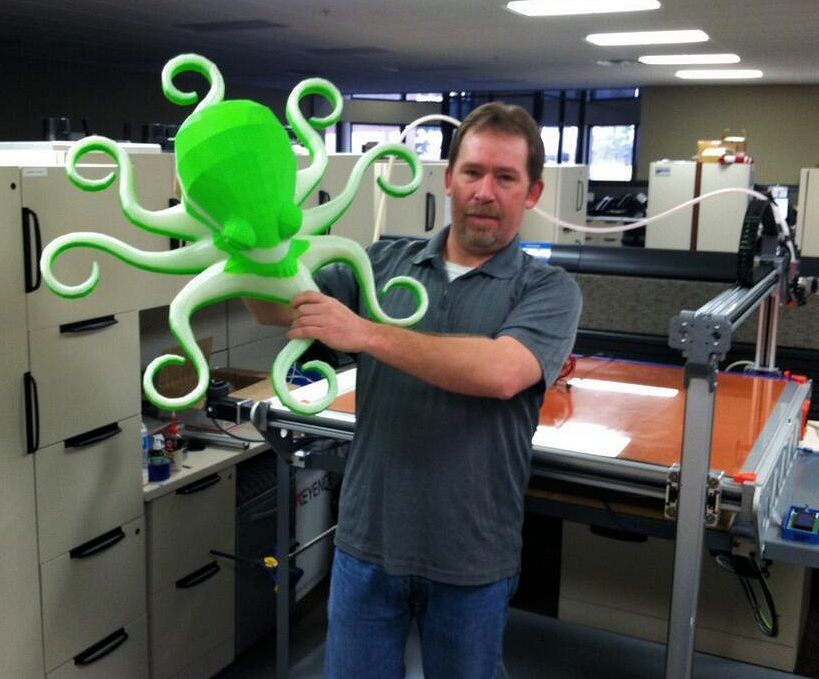 But construction firms are optimistic that they’ll be able to build more advanced structures as the technology progresses. [12]
But construction firms are optimistic that they’ll be able to build more advanced structures as the technology progresses. [12]
10. 3D printer
That’s right: a 3D printer has printed a 3D printer. [13] This is the most “meta” item on this list. You can’t print a 3D printer in its entirety, but people have printed all of its individual parts, and then they’ve manually assembled them.
Honorable mention: light-created objects
Researchers at the University of California, Berkeley discovered how to 3D print solid objects out of liquid and light. The researchers used a gooey liquid that turns solid when exposed to a certain amount of light. They used light beams to sculpt solid figures within the liquid. The benefit of this technique is that it’s easier to print bendable items. Objects printed in this way are also much smoother than those that are 3D-printed by traditional methods. [14]
None of the objects that they printed were uniquely “strange.” But the printing process itself is strange enough to be worthy of a mention on this list.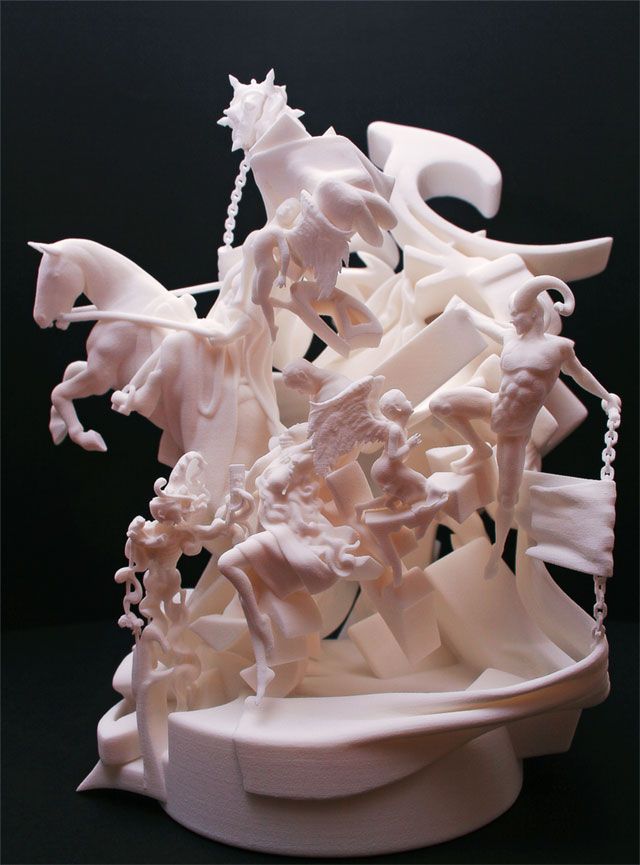
Your turn to contribute
What are you waiting for? You could be the next great inventor of a strange (or useful) 3D-printed object. Learn about HP 3D printing technology.
Here are some 3D printing ideas for you. You can print them on a large 3D printer or a home 3D printer. Some of these objects have been designed and 3D-printed by ordinary people!
- Musical instruments
- Busts
- Makeup
- Toys
- Cable catchers
- Pen holders
- Phone docks
- Tablet stands
- SD card holders
- Garden decor
- Recycling/sustainability equipment
There are so many cool items you can make with a 3D printer, no professional assistance needed. Get out there and start creating, and be sure to share your innovative or wild ideas with the rest of us. You can change the world with 3D printing, or you can print something that’ll make all of us laugh.
[1] TheGuardian.com; 3D-printed ovaries allow infertile mice to give birth
[2] Gizmodo.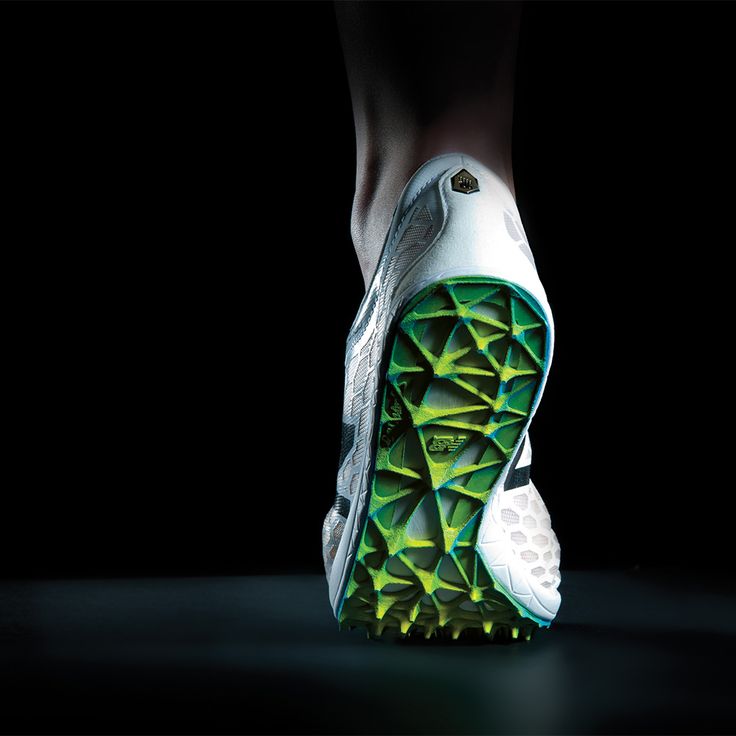 com; The First 3D Printed Cheese Was as Bizarre as You’d Expect
com; The First 3D Printed Cheese Was as Bizarre as You’d Expect
[3] Fabbaloo.com; 3D Printing Is Revolutionizing The Chocolate Industry
[4] CNet.com; This Handheld 3D printer can print skin onto people
[5] Science.Org.Au; Printing the future: 3D bioprinters and their uses
[6] BusinessInsider.com; The World’s First Bikini Made Using A 3D Printer
[7] Geek.com; World’s smallest working drill created with a 3D printer
[8] UniverseToday.com; Watch This 3D Printer Make a Microscopic Car
[9] 3DPrintingIndustry.com; 3D Printed Wall-Climbing Robot Emulates Gecko By Walking Upside Down And Underwater
[10] CNNMoney.com; New 3D-printed robot can walk on sand and rocks
[11] TechTimes.com; Expectant Parents Can Have 3D Models Of Unborn Babies
[12] CityLab.com; Is the Revolution of 3D-Printed Building Getting Closer?
[13] Sculpteo.com; Can you 3D print a 3D printer?
[14] BerkeleyNews.com; New 3D printer uses rays of light to shape objects, transform product design
About the Author
Zach Cabading is a contributing writer for HP® Tech Takes.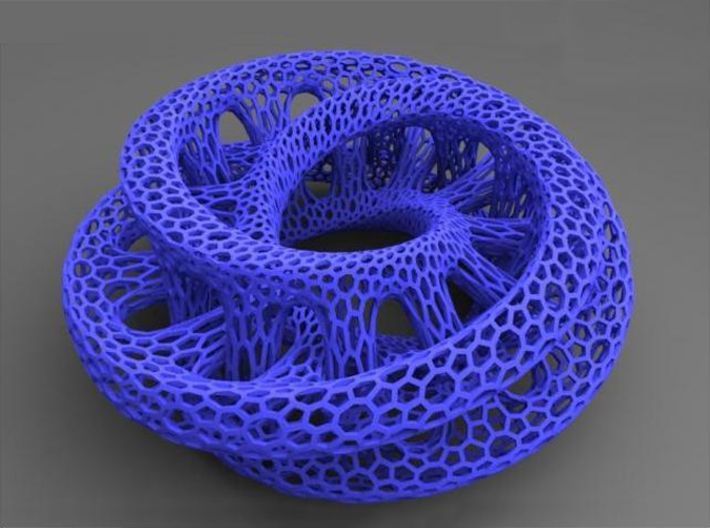 Zach is a content creation specialist based in Southern California, and creates a variety of content for the tech industry.
Zach is a content creation specialist based in Southern California, and creates a variety of content for the tech industry.8 Crazy Things People Have Made with 3D Printers
Let’s skip the “next big thing” talk and jump right into it: three-dimensional printing is officially here and people are already using the technology to change the world. 3D printing has been used in the aerospace and automotive industries for more than 25 years already, but has recently made the move to people’s offices and living rooms as they’ve gotten smaller and cheaper.
In short, the way 3D objects are printed is in one layer at a time where the computer directs the 3D printer to add each new layer as a precise cross-section of the final object. It’s a pretty unbelievable tool and just may change just about every industry you can think of.
We’ve searched around for some of the most bizarre, interesting and inventive 3D objects printed so far:
A drum set, electric guitar, bass and keyboard have been 3D printed.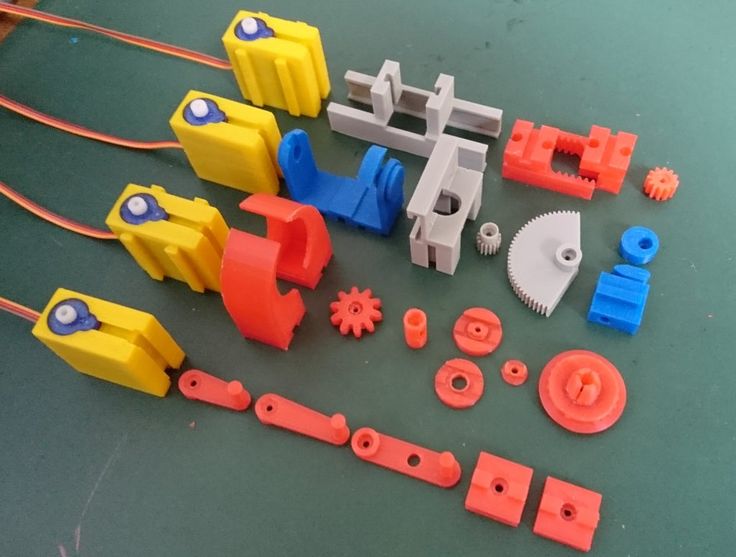 And they’re not just for looks, either. A New Zealand design engineer and professor helped build the instruments’ bodies using 3D technology before attaching things like tuning pegs, bridges, controls and other necessary features. Finally, the 3D printed instruments were played in a live band in Germany. There’s no sign of music stores being put out of business yet, but could it be in the future?
And they’re not just for looks, either. A New Zealand design engineer and professor helped build the instruments’ bodies using 3D technology before attaching things like tuning pegs, bridges, controls and other necessary features. Finally, the 3D printed instruments were played in a live band in Germany. There’s no sign of music stores being put out of business yet, but could it be in the future?
Honestly, “synthetic food” doesn’t sound super appetizing (though we may be eating it today through various fast food joints). But believe it or not, 3D printers have started delving into printing actual meals. NASA has funded an initiative to print food that astronauts can consume in space, and food scientists have been working with the U.S. military to prepare ready-to-eat meals. Also, 3D chocolate, veggie patties and meats have been fashioned. The verdict on the quality of the food’s taste is still out, but if 3D printed pizza and pasta can cut it for military and astronauts, you have to wonder how long it will be until we’ll start printing food at home.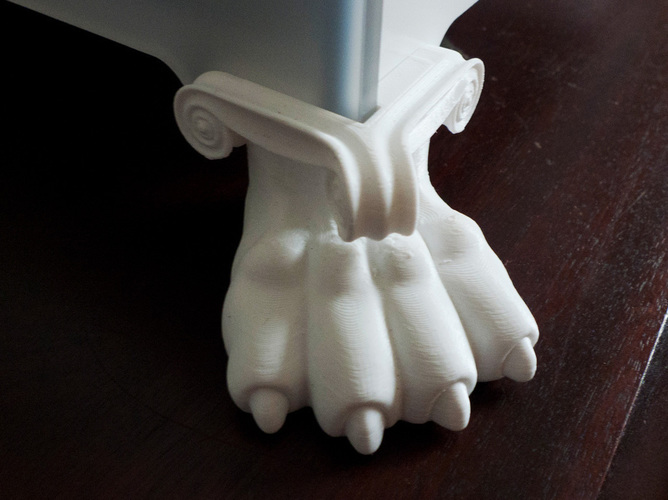
Yes, you’re reading this right. A 3D-printed firearm was created by a “high tech” gun company called Defense Distributed. The “Liberator,” as the gun is called, is made up of 16 different parts, all plastic. The gun’s body and barrel only take a few hours to print, and the only non-printed portion of the gun is a nail, “used as a firing pin.” The US government has already expressed concerns about the idea of homemade firearms, but no laws have been passed thus far.
When we say “organs,”We’re not talking about the pipe instrument you see at church. We’re talking actual human body organs—and that includes ears, bones and even skin. 3D printing has been used to produce these organs before, and the medical field has already experimented with printing liver tissue and embryonic stem cells using “bioprinters” and what is called a “cell gel.”
Healthcare professionals may find convenient the ability to 3D print synthetic legs, arms, hands and even jaw bones. These artificial limbs have reportedly been made and used cheaply often for victims of the Syrian civil war. The girl in the picture above had a prosthetic 3D printed arm made for her for only $200.
These artificial limbs have reportedly been made and used cheaply often for victims of the Syrian civil war. The girl in the picture above had a prosthetic 3D printed arm made for her for only $200.
Last year, celebrity Dita Von Teese wore a black ball gown that hugged her in all the right places and was produced by a 3D printer. Now, we’re not saying it was pretty—or that it looks comfortable in the least, but the model for 3D fashion printing could be improved with time and practice. Bikinis, shoes, purses and eyeglass frames have also gone through this digitized form of printing.
Pretty soon, you might be able to skip the bike store and put a 3D printer in your garage. Introducing the Empire 3D-printed titanium trail bike. Built in the UK, the nine-component bike may be the future of bicycle manufacturing.
So it hasn’t been done quite yet, but according to Best Computer Science Schools, the University of Southern California “has a large 3D printer that has the capability to build a 2500 square foot home in 24 hours.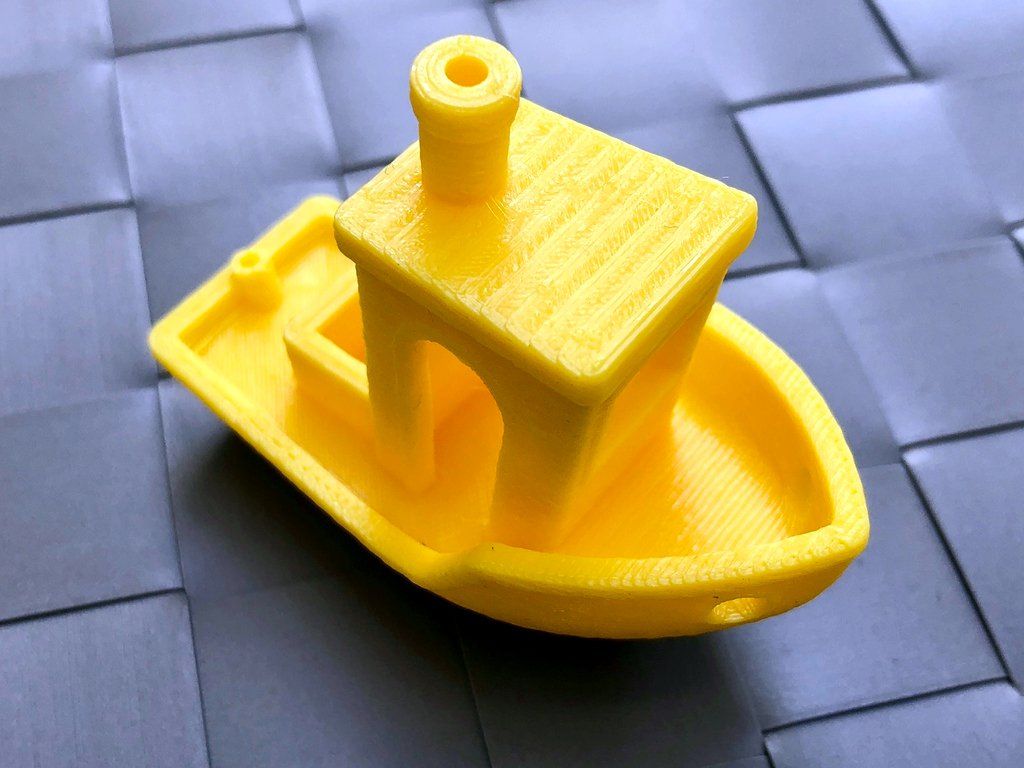 ” No more months-long construction projects in new housing developments—just 24 hours for an average-sized home. Sounds efficient, but may not leave much room for creative design.
” No more months-long construction projects in new housing developments—just 24 hours for an average-sized home. Sounds efficient, but may not leave much room for creative design.
It’s not clear yet whether 3D printing will change the world as we know it, but the possibilities are huge. Given the speed at which other technologies, like mobile connectivity and artificial intelligence have taken off, it’s not out of the question to expect 3D printing to become increasingly part of our daily lives.
GET PASTE RIGHT IN YOUR INBOX
The best music, movies, TV, books, comedy and more.
Yes, I would like to receive Paste's newsletter
50 Cool Things to 3D Print / Sudo Null IT News
No ideas for 3D printing? Tired of worthless trinkets? Here is a list of 50 cool really useful things for 3D printing.
Like us, you're excited about the possibilities of 3D printing. But, unfortunately, the horizon is littered with trinkets, trinkets and other unnecessary things.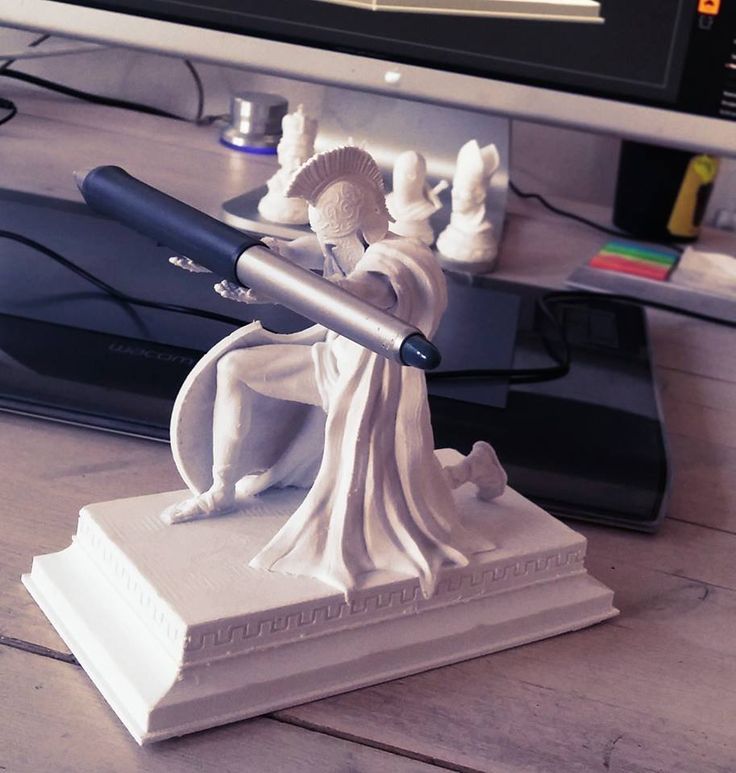 We are in danger of being buried under a heap of useless rubbish.
We are in danger of being buried under a heap of useless rubbish.
Throw off the shackles of mediocrity! Let's create really useful things! Here is a list of cool things that you can make on a 3D printer right now. Prove to your family and loved ones that this wonderful technology can be used daily and in practice.
No access to 3D printer? No problem. Just upload your files to our 3D printing price comparison system and choose the best price, ONLINE!
Download from Myminifactory
Cool thing for 3D printing No. 29: Form for Snegles
Download from ThingiVerse
Cool 3D Printable Item #30: Wine Bottle Protector
Download from MyMiniFactory170004
Cool thing for 3D printing No. 31: Pocket ashtray
download from Myminifactory
Cool Press No. 32: Rodist Rodper 9000 9000 9000 9000 download from MYMINIFACTORY
3D Printable Cool Item #33: Apple Remote Stand
Download from MyMiniFactory
3D Printable Cool Item #34: Key Holder
Download with Myminifactory
Cool thing for 3D printing No.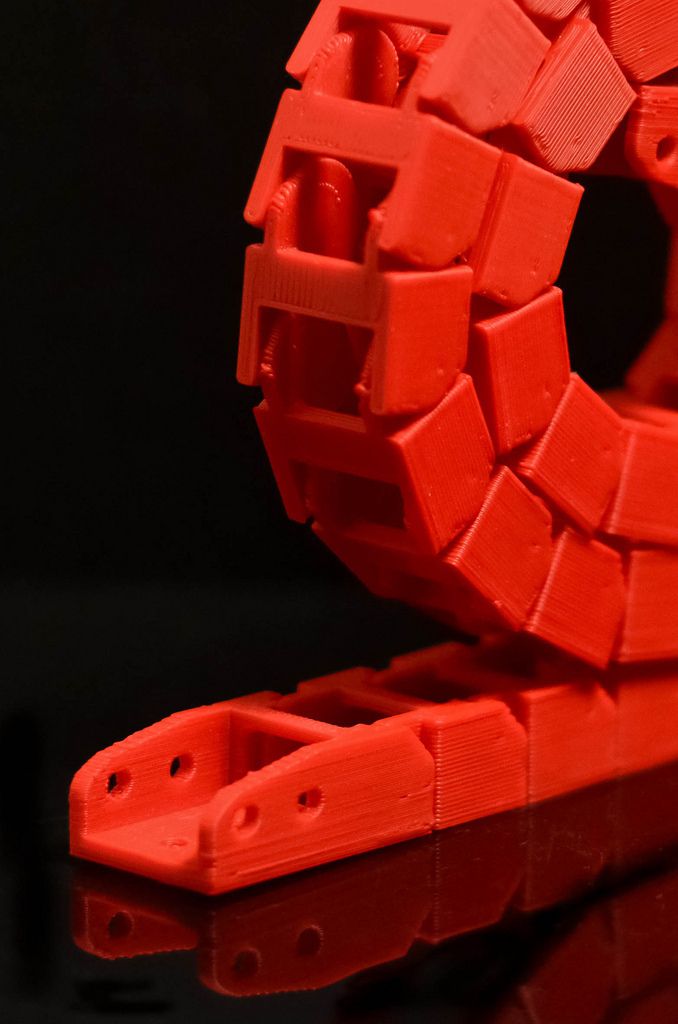 35: Holder of the cutlery for people with disabilities
35: Holder of the cutlery for people with disabilities
Download from Myminifactory
Current Passing No. 36: Cover wine bottle
Download from MyMiniFactory
Cool thing for 3D printing #37: Paper cup holder
download from Myminifactory
Cool thing for 3D printing No. 38: Case for blades
download from Myminifactory
Cool thing for 3D printing No. 39: Holder for a children from MyMiniFactory
3D Printable Cool Item #40: Towel Rack
Download from MyMiniFactory
3D Printable Cool Item #41: Holder for a glass
Download with Myminifactory
Cool thing for 3D Press No. 42: Holder for a phone in the shower
download from Myminifactory
Twisting thing for 3D printing No. 43: Holder No. 43: Holder No. 43: for beer glasses
Download from MyMiniFactory
Cool thing for 3D printing #44: MacBook Pro stand
download from Myminifactory
Cool thing for 3D printing No.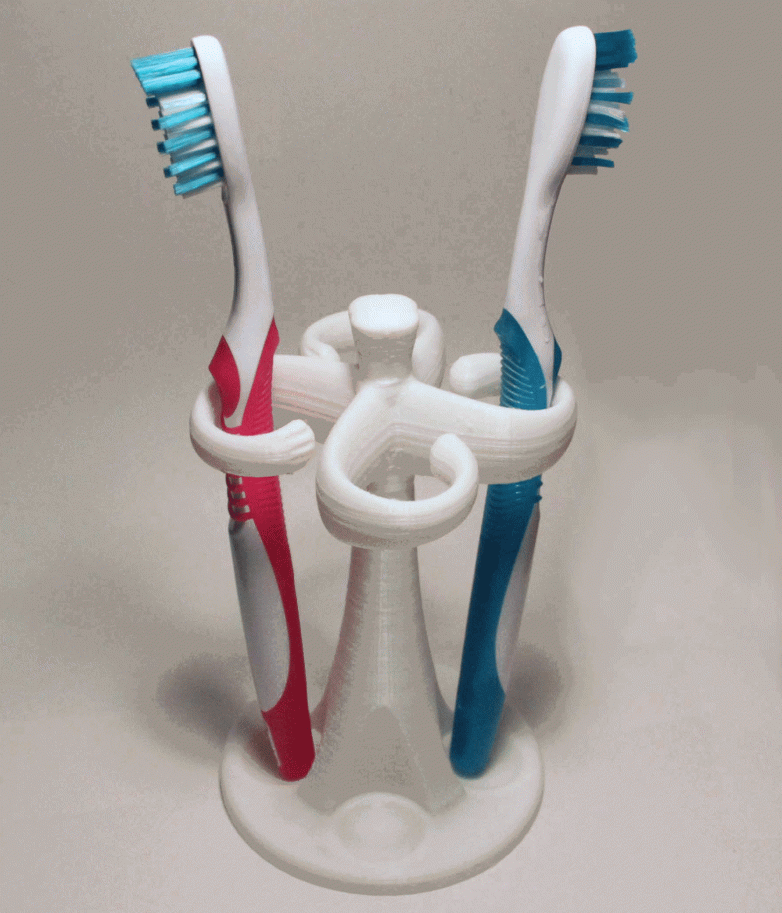 45: Protection for SD-Cart
45: Protection for SD-Cart
download from Myminifactory
Cool thing No. 46: BATERIOUS 9000
Download from MyMiniFactory
3D Printable Cool Item #47: Ice Cream Cone Holder
Download from MyMiniFactory
Printable Cool Item #40016 shower set
download from Myminifactory
Cool Spring No. 49: Evacal separator
download from Myminifactory
Cool Press No. 50 for 3D:
Download from MyMiniFactory
Want more exciting news from the world of 3D technology?
Follow us on social. facebook networks:
The most amazing things 3D printed
The most amazing things 3D printed | RBC StyleTV channel
Newspaper
Pro
Investments
RBC+
New economy
Trends
Real estate
Sport
Style
National projects
City
Crypto
Debating club
Research
Credit ratings
Franchises
Conferences
Special projects St.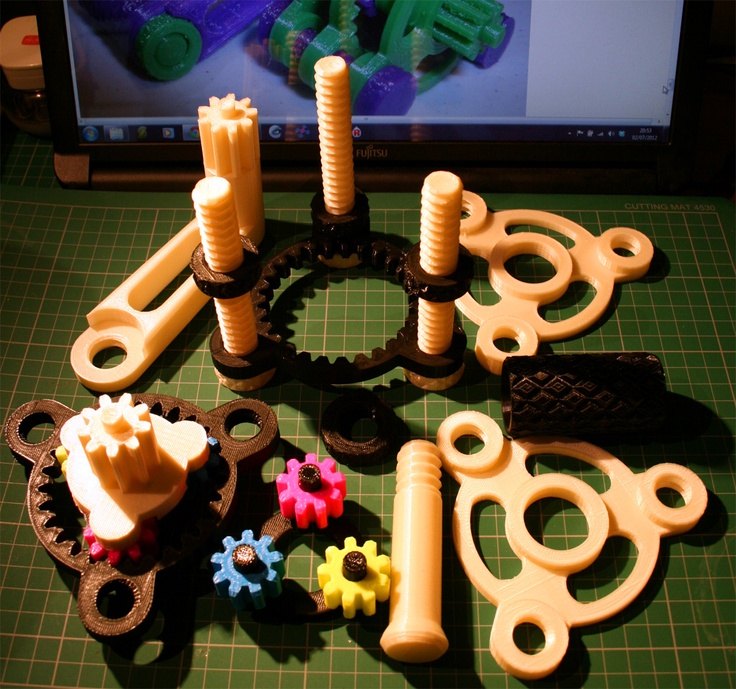 Petersburg
Petersburg
Conferences St. Petersburg
Special projects
Checking counterparties
RBC Library
Podcasts
ESG index
Politics
Economy
Business
Technology and media
Finance
RBC CompanyRBC Life
Things The most amazing things 3D printed0004
Things The most amazing things 3D printed
Advertising on RBC www.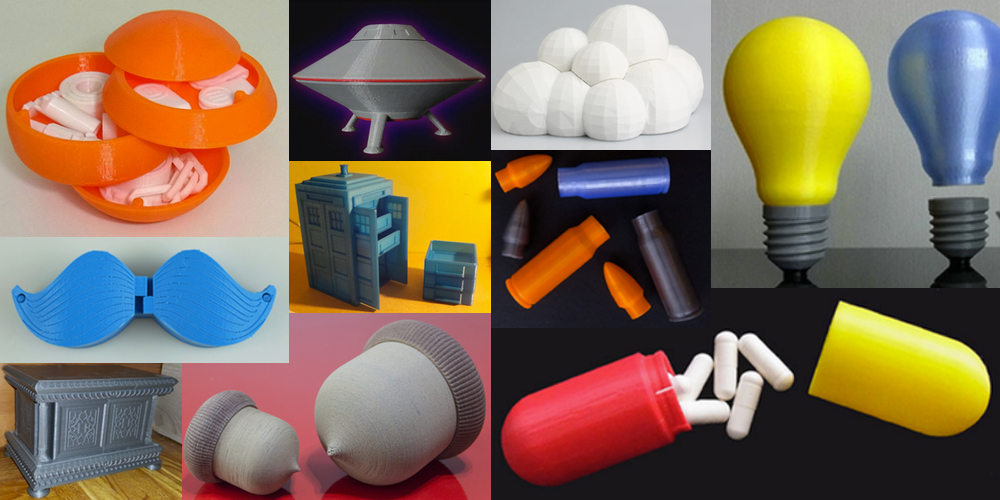 adv.rbc.ru
adv.rbc.ru
Advertising on RBC www.adv.rbc.ru
Advertising on RBC www.adv.rbc.ru
Items
© 3dprint.com; 3d-babies.com; blog.solidconcepts.com; korecologic.com
Author Text: Dmitry Petrenko
June 18, 2015
The Dutch company MX3D recently announced that it intends to build an iron bridge using a 3D printer. It will appear over one of the Amsterdam canals in 2017. And the news surprised no one. 3D printing technology has already proven its limitless possibilities.
| — This bridge will show that 3D printing has finally entered the world of large-scale infrastructure projects, providing unrivaled design freedom, But even without waiting for 2017, 3D printers have something to surprise us with.
Houses
If you can print a miniature model of a house on a 3D printer, why not just enlarge the device and use the same scheme to build a building in full size? This is exactly the idea that came to the mind of engineers from the Chinese company WinSun Decoration Design Engineering Co. They have developed a giant 3D printer (30m long, 11m wide and 7m high) capable of printing up to ten residential buildings per day. Concrete is used as the main material: it fills special containers, where it then hardens, forming walls and ceilings. The method is very cheap: one building costs only $4,800, and its area is 200 square meters. m. |
| In addition, a residential building is being printed in Holland. |
| Unborn children Despite the intimidating name of the service, there is nothing terrible about it. The creators of the site 3d-babies.com can print you a model of a baby in the womb, based on images from ultrasound scans. One such figurine costs $800. |
| Food and sweets The development of food 3D printers is actively financed by NASA - they are going to feed astronauts with printed food. The diet of ordinary earthlings will also be replenished with similar food: 3D printers for the production of pizza, sweets and chocolate have already been created. |
| Weapon Some of the biggest stories in 3D printing involve the creation of weapons. There is nothing surprising in this: by loading a three-dimensional model of a pistol or rifle into the printer's memory, you can create them at home - there would be a desire and certain skills. Bullets in this case will be plastic, but they can still harm a person. The first model of firearms called Liberator was created by 26-year-old American Cody Wilson. The FBI, having studied this pistol, came to the conclusion that its destructive power is enough to pierce the internal organs of a person. |
| In addition to Wilson, the company Solid Concept was engaged in printing weapons. She managed to create an iron pistol, from which 50 bullets can be fired in turn without any damage to the body. |
| Vehicle The Urbee 2 certainly doesn't look like an executive sedan, but it's the first car in the world to have all its parts created on a 3D printer. The Urbee has three wheels, is cheap to manufacture, and uses less fuel than any existing mass-produced car. The main disadvantage is the power of the engine, only 23 horsepower. So with a breeze to ride on Urbee will not work. |
| Dentures The possibilities of 3D printers are being extensively explored by prosthetics companies. For example, in 2014, 16-year-old Daniel Omar, who lost both arms in an explosion in Sudan, received a 3D-printed prosthesis. It was printed by Not Impossible Labs. The production of the prosthesis took six hours and cost only $100. The prosthesis has a lot of limitations: it is not so easy to control it and you cannot lift heavy objects. However, the development of Not Impossible Labs allowed Daniel to eat on his own for the first time in two years since the terrible incident. |
| Help 3D printers and animals. Last year in the US, a dog named Darby received prosthetic legs that allowed her to run and jump, and Beauty's bald eagle had a severely deformed beak restored.
|
| Organs If protein is used instead of the usual plastic, organs can be created on a 3D printer. Scientists from Cambridge have already been able to print healthy rat retinal cells. These tissues can replace damaged areas of the rat's eye and restore sight to the rodent. Research in this area in the future will allow, for example, to treat glaucoma. |
| Scientists at the University of Louisville have gone one step further by using fat cells and collagen to 3D print heart muscle tissue. Since, according to scientists, the heart is one of the simplest human organs, as a result, using this technology, it will be possible to create full-fledged hearts. In addition, in 2014, a group of surgeons managed to save the life of a newborn boy who was born with a heart defect. He needed an urgent, very complex and dangerous operation, so the doctors created an exact copy of his heart on a 3D printer and first trained on it, trying to find the most effective way to cure the baby. |


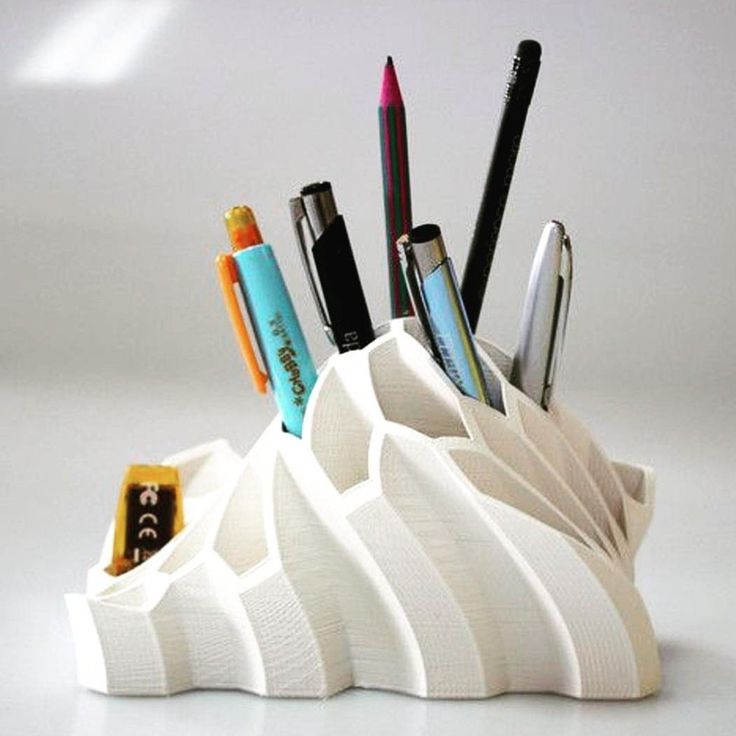 The shelf has a slanted recess that allows you to keep your smartphone or tablet upright.
The shelf has a slanted recess that allows you to keep your smartphone or tablet upright. 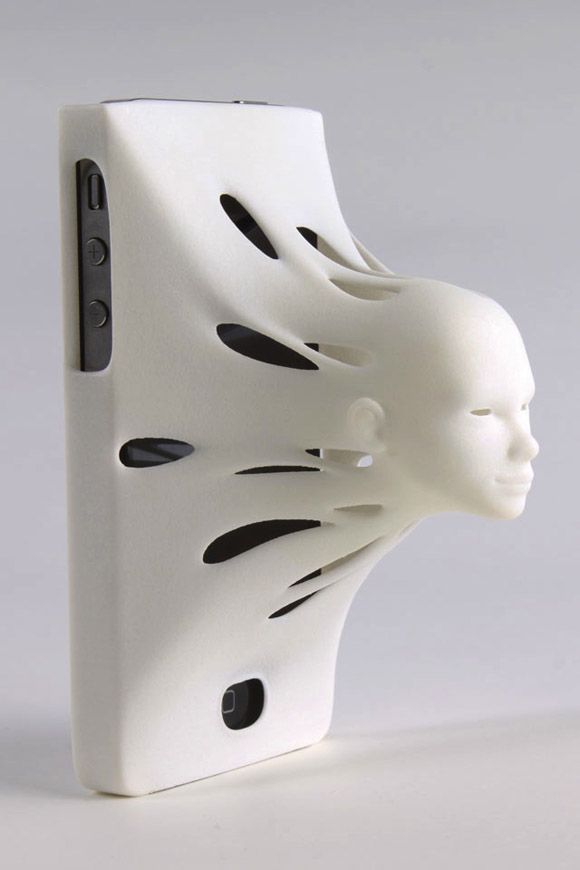 To make the lamp taller, you can add the required number of elements.
To make the lamp taller, you can add the required number of elements. 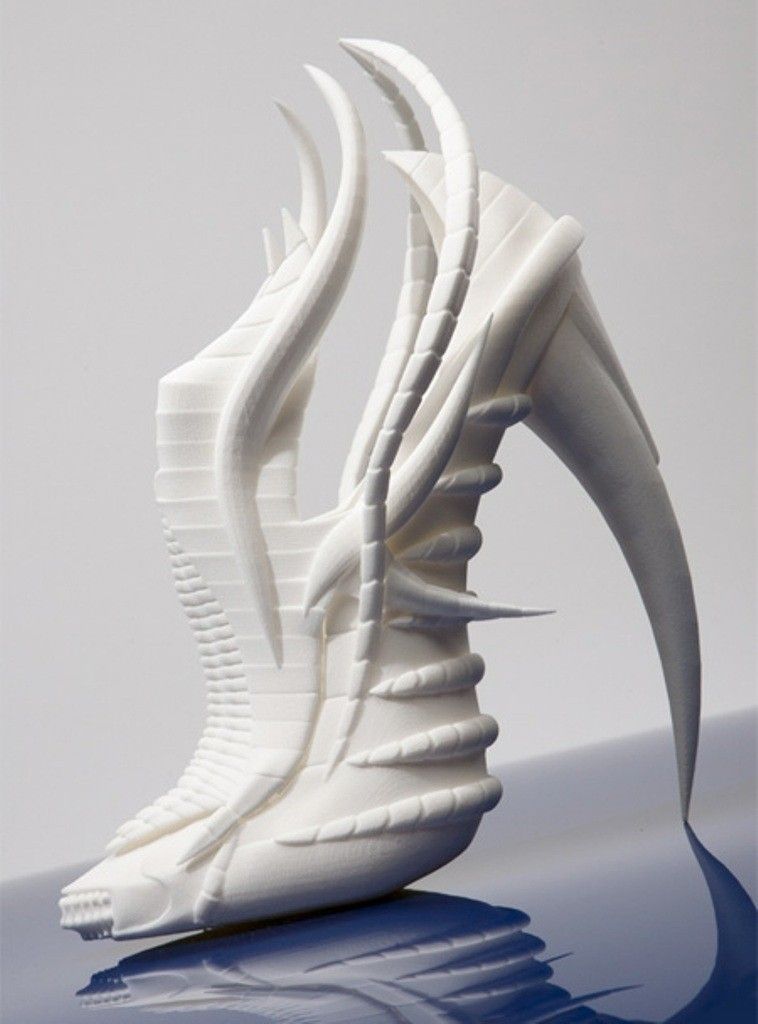 What could be easier?
What could be easier? 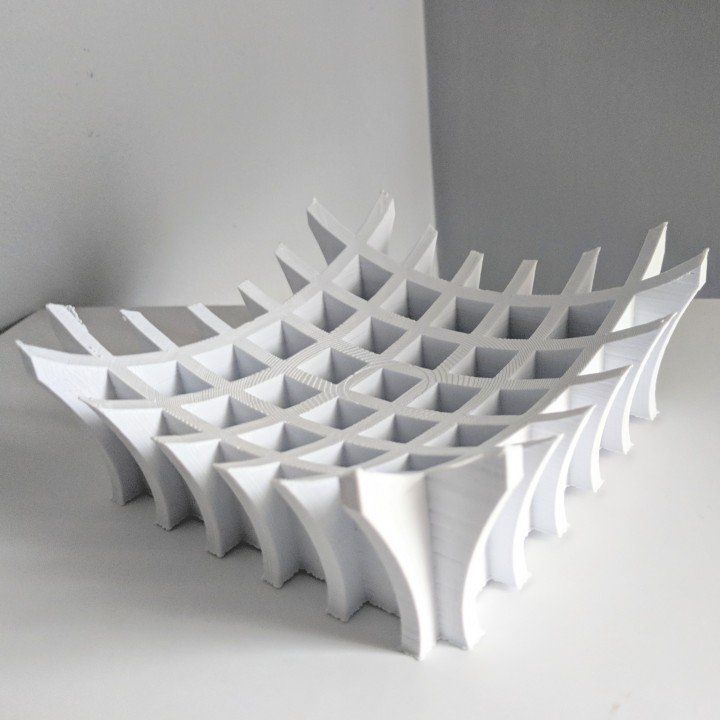 This simple stand supports 7" and larger tablets in both portrait and landscape modes.
This simple stand supports 7" and larger tablets in both portrait and landscape modes. 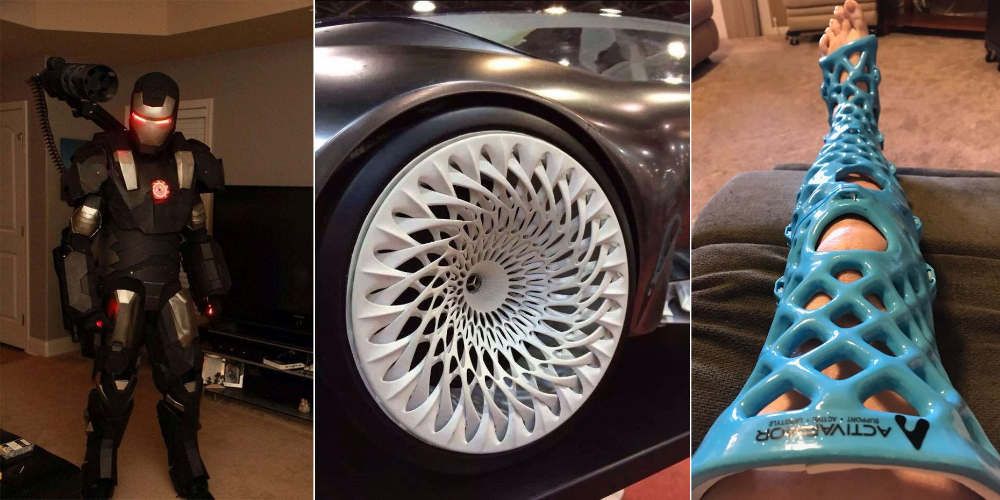 Printed without support, at the end there is a hole for a lace.
Printed without support, at the end there is a hole for a lace. 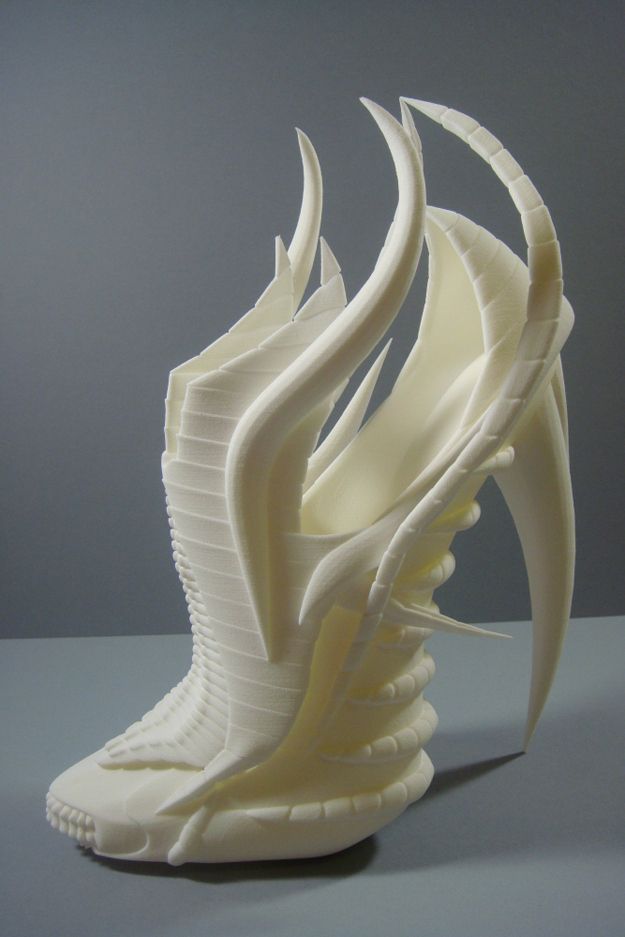
 On these universal machines, many things can already be created today: from children's toys to cars.
On these universal machines, many things can already be created today: from children's toys to cars.  But there the process is much slower.
But there the process is much slower. 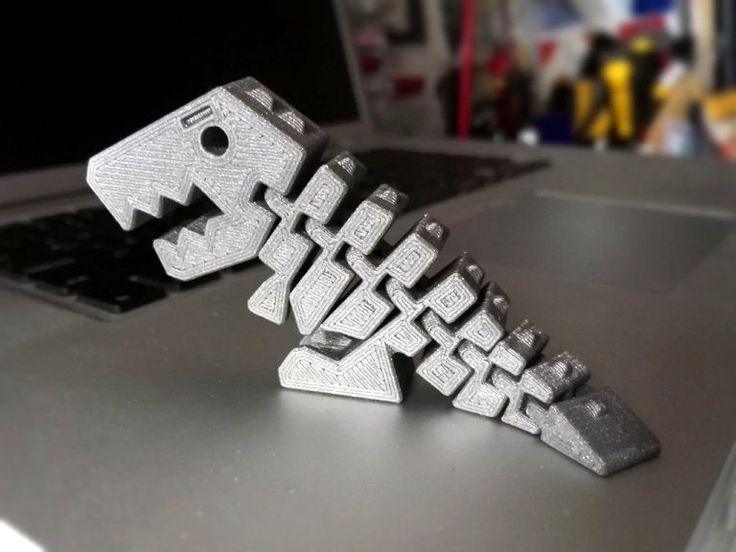 Fortunately, the direct metal laser sintering technology used by the company is not available to owners of mass-produced 3D printers.
Fortunately, the direct metal laser sintering technology used by the company is not available to owners of mass-produced 3D printers. 